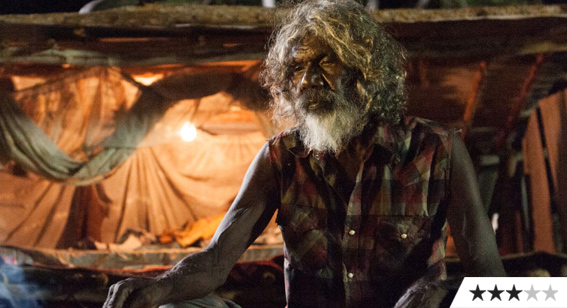Review: Charlie’s Country
Important. Powerful. Worthy. If these are the kind of words that draw you to a film, you’re in the minority, but get thee to a cinemateque! For if someone hasn’t yet described Rolf de Heer’s Cannes Festival offering Charlie’s Country as “a message for our times” then it’s only to make space for an acclamation that “this […]

Important. Powerful. Worthy. If these are the kind of words that draw you to a film, you’re in the minority, but get thee to a cinemateque! For if someone hasn’t yet described Rolf de Heer’s Cannes Festival offering Charlie’s Country as “a message for our times” then it’s only to make space for an acclamation that “this is what cinema is about.”
You can win a game of platitude bingo faster than you can say “art-house darling” over the coverage of this film. Which is not to infer for a second it is somehow not befitting of all these plaudits. Rolf de Heer is a master filmmaker and this is an elegant and insightful film, beautifully illustrative of a genuine national shame.
The titular Charlie is a Northern Territory aboriginal for whom the government’s intervention policy means an arbitrary and inconsistent implementation of law that ignites a chain reaction of hardship and woe.
The question is who will see it? With all respect to the skill on show and to David Gulpilil’s screen-grabbing performance as Charlie, it is hard to conceive of anyone watching this film who isn’t already an impassioned, partisan believer.
This is a depressing sermon preached to the choir. It is trite to ask for this issue to be made entertaining, but the film must be enticing. It isn’t, and a film can’t illustrate if it isn’t widely seen, it can’t prompt debate if it doesn’t play to the naysayers.
Charlie’s Country is important. It is powerful. It is worthy. But seeing it is destined to be an addition to the list of things a tragically small group will fruitlessly demand the majority “should” be doing.




















